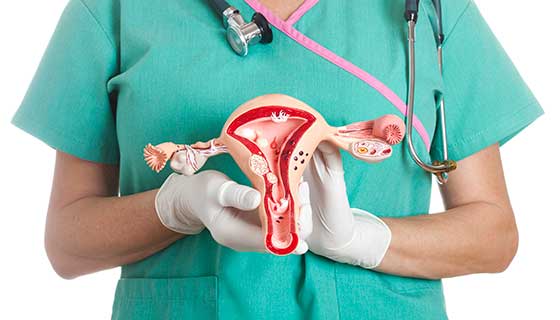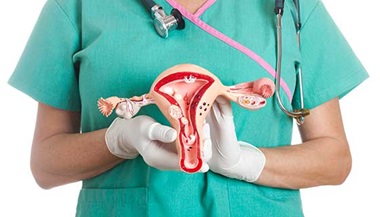Freezing Eggs: Preserving Fertility for the Future
Reviewed By:
Many women want to have children someday. But what if you haven’t found the right partner, need more time to establish your career, want to accomplish other life goals or are facing a medical procedure that could impact your fertility? Freezing your eggs is an option that may help you realize your dream of motherhood when you’re ready.
Having your eggs extracted and stored for future use (called cryopreservation) may give you the best chance of conceiving later on, especially if you’re facing a medical treatment — such as chemotherapy, treatment of severe endometriosis or gender affirming surgery — or a health condition such as an autoimmune disease that can affect fertility.
Who is a good candidate for freezing eggs?
Whether or not freezing eggs is a good option for you depends on a few different factors that you need to discuss with your doctor. For example, if you’ve been diagnosed with cancer, your eligibility for egg freezing may depend on what type of cancer it is and if you’ll have time to complete the fertility preservation process before cancer treatment begins.
But for many women, the biggest factor to consider is their “biological clock.” In medical terms, this means that the number of eggs you have and the quality of those eggs both decrease as you get older. Eventually you stop ovulating (releasing eggs from your ovaries for potential fertilization) when you reach menopause (commonly between 45 and 55 years). Age is the most important factor in successful egg freezing.
“Your egg supply starts to decline more rapidly around age 37,” says Chantel Cross, M.D., a reproductive endocrinologist and infertility specialist with the Johns Hopkins Fertility Center at Johns Hopkins Health Care & Surgery Center – Green Spring Station in Lutherville, Maryland. “By 43, 90% of a woman’s eggs are abnormal, which means they don’t have the potential for pregnancy.”
Women who freeze their eggs before age 40 have a greater likelihood of achieving pregnancy with those eggs in the future. But a reproductive endocrinologist (infertility specialist) can provide testing to see if you’re a good candidate. “Freezing eggs after the age of 40 is not typically recommended but may be considered on a case-by-case basis,” says Cross.
What is the process to freeze eggs?
While egg freezing is a multistep process, it’s a lot more straightforward than you may think. “It’s the exact same process as for in vitro fertilization,” says Cross. “The only difference is that after egg retrieval we store the eggs rather than fertilizing them.”
Here’s what you can expect:
- You self-inject two to three hormone medications every day for 10–12 days. (A friend or partner can help with this if necessary.) This encourages a group of eggs to develop at the same time.
- To track the development of the eggs during this period, you also have four to six pelvic ultrasounds and frequent bloodwork.
- Once those eggs have matured, you undergo an ultrasound-guided surgical procedure to retrieve them. The outpatient procedure takes 20–30 minutes under anesthesia.
- An embryologist (a person trained to examine eggs and embryos) will verify that the eggs are mature, which means they have the potential to become fertilized.
Side effects of egg freezing
While side effects are common, they’re usually not severe and are a result of the natural elevation of hormone levels that occurs with ovary stimulation. These may include:
- Mood swings
- Hot flashes
- Headaches
- Nausea
After the retrieval procedure, some women may have:
- Bloating
- Cramping
- Mild pain
Where are eggs stored?
After eggs are harvested, they go through vitrification — a method of quickly putting eggs into a deep freeze. They’re stored in liquid nitrogen tanks in an embryology lab.
A good embryology lab has the following:- Around-the-clock monitoring systems with alarms to ensure equipment is properly functioning and the correct temperature is maintained.
- Manual checking of temperatures.
- Embryologists who oversee lab operations and a lead embryologist with certification as a high-complexity clinical laboratory director.
- Certification by Clinical Laboratory Improvement Amendments, a government agency that regulates all laboratory testing.
The Johns Hopkins Fertility Center

The experts at the Johns Hopkins Fertility Center specialize in the latest techniques of fertility preservation, including egg, sperm and ovarian tissue freezing.
What happens when you want to use the eggs?
When you’re ready to use the eggs, a group of them are thawed and fertilized with sperm from your partner or a donor. “We generally recommend intracytoplasmic sperm injection to fertilize eggs because we’ve found natural methods of fertilization aren’t as successful once the eggs have previously been frozen,” says Cross.
Wondering how long you can keep eggs frozen? Egg freezing has only recently become more widespread. So there isn’t enough data to indicate if there’s a limit on how long eggs can stay in liquid nitrogen and remain viable. “However, we’ve been freezing embryos for a long time. We’ve had pregnancies from embryos that were frozen for more than 10 years,” Cross reports. “We assume that eggs would behave similarly if frozen.”
How much does freezing eggs cost?
Since insurance coverage and fertility center fees vary, it’s best to check with your infertility specialist and your health insurance company about out-of-pocket expenses. The total cost generally covers:
- Medication
- Ultrasounds
- Bloodwork
- Egg retrieval procedure
- Egg freezing process
Help with egg freezing fees
If you have a cancer diagnosis or other medical condition that affects fertility, you may be able to receive more financial coverage than you think.
“Some states require insurance companies to pay for fertility preservation when there’s a cancer diagnosis,” says Cross. “Also, there are grants available for cancer patients who need help covering the cost of egg freezing. Don’t assume it’s not an option for you — at least come in and talk to a fertility specialist about what’s possible in those circumstances.”







